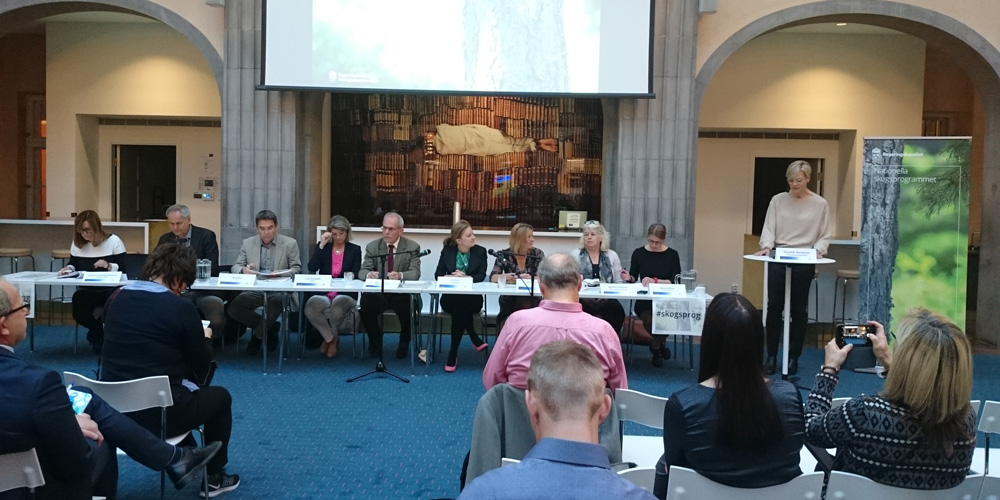On the 17th of May the Swedish government adopted strategy for National Forestry Programme. At the core of the programme is broad dialogue about the role of forests in a sustainable society and a growing bioeconomy. Sustainable management and conservation of the country’s forests should not only be a domestic issue, but also a priority for Swedish-international cooperation.
The new strategy, which is the first of its kind, is based upon five target areas, including sustainability, multifaceted use of forest resources, raw materials used by the forest-based industries, conservation, knowledge and innovation. “This is about all the services that forests provide us with; massive economic value, significant social value and crucial environmental value. All the benefits we gain from forests need to be unified and recognised.” says Sweden’s Minister for Rural Affairs, Sven Erik Bucht, during a press conference where the new strategy was presented.
Developing the strategy of the Forestry Programme has been a work in progress since 2015, and different stakeholders have contributed to developing a cohesive vision. The Forest, Climate and Livelihood Research Network (Focali) have been involved in the dialogue process through meetings with the secretariat for the Forestry Programme and through a referral response to supporting reports.
This knowledge exchange and dialogue is indicative of a sound scientific base for the new policy and productive cross-sector collaboration. Maria Ölund, Project Coordinator at Focali, hopes that this cooperation will continue during the implementation phase: ”To understand and to apply sustainable management of forests and multifunctional landscapes, we need to employ a breadth of natural- and social science-based research and facilitate cooperation between academia and other stakeholders”.

